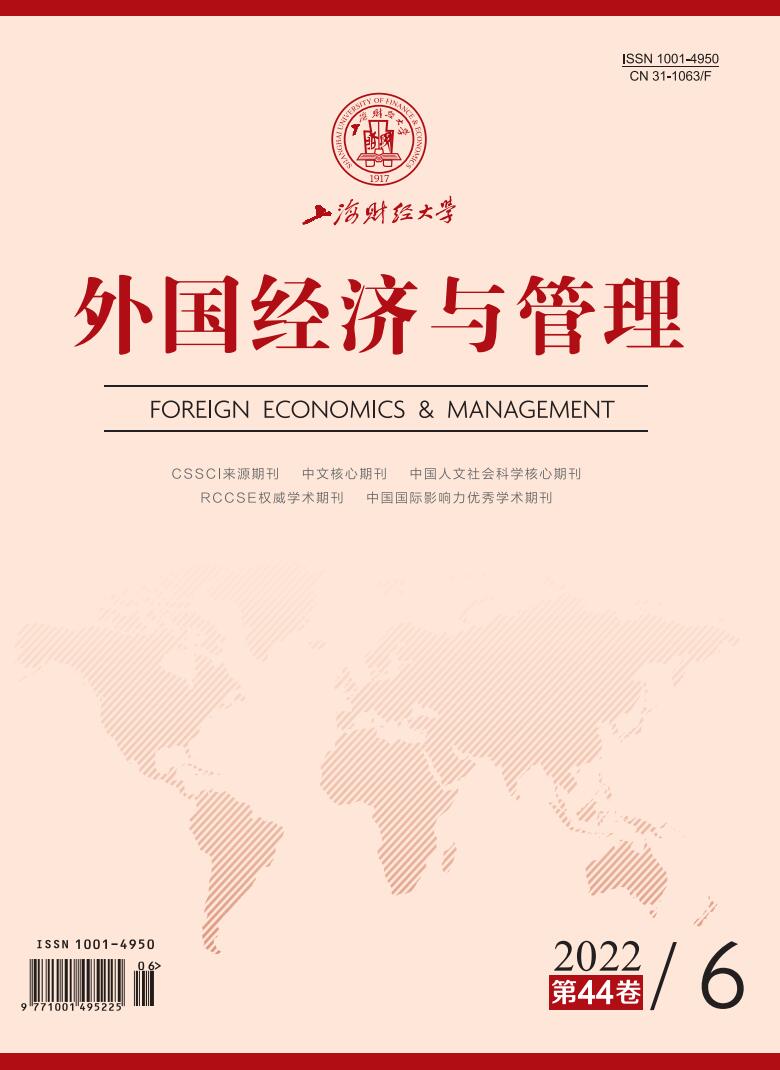Greed refers to excessive desire without satisfaction. It is a widespread personality trait, which plays an important role in economy, management, politics, life and other fields. However, the current research on greed is relatively scattered, especially in the context of organizational management. In order to make up for this important gap in the previous literature, this paper systematically combs and critically summarizes the researches on greed in the context of organizational management. This paper firstly introduces the concept and measurement of greed, and points out the advantages and disadvantages of different concepts and measurements. On this basis, this paper analyzes the causes of greed, including the factors at the individual level, the situation level and the interaction between the individual and the situation level, and summarizes the impact of greed, including emotion, decision-making and behavior. It is worth pointing out that greed is a double-edged sword. It has both positive effects, such as enhancing competitiveness and driving organizational development, and negative consequences, such as excessive risk-taking decisions and unethical behaviors. Finally, this paper constructs an integrated framework of greed research, and proposes that future research can be carried out from the following aspects: (1) Further develop the connotation and measurement tools of greed in the organizational context. (2) Explore the impact of different degrees of greed on employees’ job performance and satisfaction and managers’ leadership. (3) Explore the immaterial greed in the organization, such as the impact of knowledge greed on knowledge hiding behavior and the impact of time greed on creativity. (4) Deeply study the interaction between organizational context and individual greed, such as how network culture affects the greedy decisions of employees and leaders in the digital context. (5) Explore the relationship between greed and organizational structure, organizational culture and other organizational research topics. (6) Focus on the cross-cultural research of greed. This paper attempts to make the following contributions: First, it systematically sorts out the concept of greed and the relationship between cause and effect, proposes an integrated research framework, and provides a new research topic and direction for the future study of greed. Second, based on the comprehensive analysis of relevant literature, it focuses on the manifestation and mechanism of greed in the context of organizational management, deepening and expanding the research on greed in the context of organizational management. Third, it has some enlightenment on how organizations and their managers deal with greed effectively in practice. In this paper, the influencing factors of greed are summarized as environment and individual and their interaction factors, which is helpful to comprehensively analyze the mechanism of greed in organizations and provide reference directions and ideas for organizations and individuals to effectively deal with greed. In addition, this paper has reference significance for organizations to reverse the negative effects of greed and make full use of its positive effects.
 / Journals / Foreign Economics & Management
/ Journals / Foreign Economics & ManagementForeign Economics & Management
JIN Yuying, Editor-in-Chief
ZhengChunrong, Vice Executive Editor-in-Chief
YinHuifang HeXiaogang LiuJianguo, Vice Editor-in-Chief
Greed in Organizational Context: A Literature Review and Prospects
Foreign Economics & Management Vol. 44, Issue 06, pp. 34 - 46 (2022) DOI:10.16538/j.cnki.fem.20220310.201
Summary
References
Summary
[1] Shu Yueyu, Fu Jin. Research development and psychological mechanism of greed. Psychological Research [J], (2018),(11): 204-210.
[2] Wang Xue, Wu Song, Sun Jiaqing, FengZiqi, JinShenghua. Greed: Attitudes, motivations, and Decision-making Mechanisms. Psychological Science [J], (2013),(4): 740-750.
[3] Yang Jiping, Zhang Qianli. The effect of money priming on unethical behavior and its decision-making mechanism. Psychological Science and Technology,(2016),(4): 179-182.
[4] Crusius J, Thierhoff J, Lange J. Dispositional greed predicts benign and malicious envy[J]. Personality and Individual Differences,2021, 168: 110361.
[5] Duan J Y, Xu Y, Wang X T, et al. Voice for oneself: Self-interested voice and its antecedents and consequences[J]. Journal of Occupational and Organizational Psychology,2021, 94(1): 1-28.
[6] Helzer E G, Rosenzweig E. Examining the role of harm-to-others in lay perceptions of greed[J]. Organizational Behavior and Human Decision Processes,2020, 160: 106-114.
[7] Jiang X Y, Hu X Y, Liu Z Z, et al. Greed as an adaptation to anomie: The mediating role of belief in a zero-sum game and the buffering effect of internal locus of control[J]. Personality and Individual Differences,2020, 152: 109566.
[8] Lambie G W, Haugen J S. Understanding greed as a unified construct[J]. Personality and Individual Differences,2019, 141: 31-39.
[9] Liu Z Z, Sun X M, Ding X C, et al. Psychometric properties of the Chinese version of the dispositional greed scale and a portrait of greedy people[J]. Personality and Individual Differences,2019, 137: 101-109.
[10] Mussel P, Hewig J. A neural perspective on when and why trait greed comes at the expense of others[J]. Scientific Reports,2019, 9(1): 10985.
[11] Razen M, Stefan M. Greed: Taking a deadly sin to the lab[J]. Journal of Behavioral and Experimental Economics,2019, 81: 164-171.
[12] Sajko M, Boone C, Buyl T. CEO greed, corporate social responsibility, and organizational resilience to systemic shocks[J]. Journal of Management,2021, 47(4): 957-992.
[13] Seuntjens T G, Zeelenberg M, Breugelmans S M, et al. Defining greed[J]. British Journal of Psychology,2015, a,106(3): 505-525.
[14] Seuntjens T G, Zeelenberg M, van de Ven N, et al. Dispositional greed[J]. Journal of Personality and Social Psychology,2015, b,108(6): 917-933.
[15] Zeelenberg M, Seuntjens T G, van de Ven N, et al. When enough is not enough: Overearning as a manifestation of dispositional greed[J]. Personality and Individual Differences,2020, 165: 110155.
Cite this article
Duan Jinyun, Yin Yishuai, Song Dian. Greed in Organizational Context: A Literature Review and Prospects[J]. Foreign Economics & Management, 2022, 44(6): 34-46.
Export Citations as:
For
ISSUE COVER
RELATED ARTICLES




 6880
6880  9822
9822

